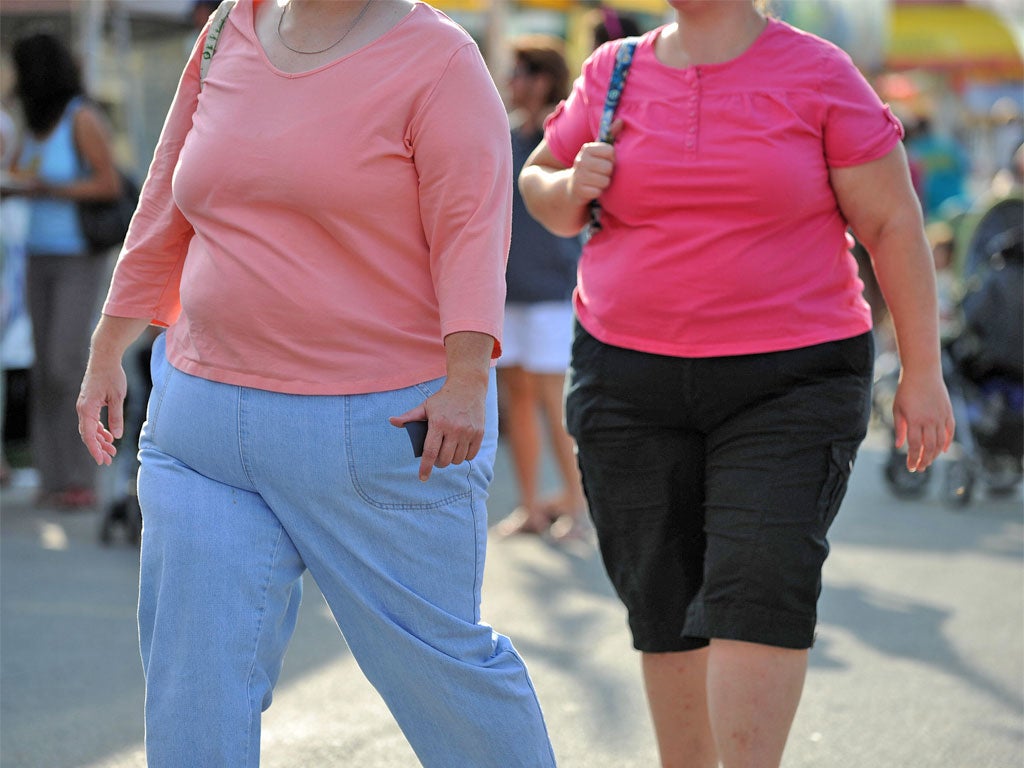Government's attempts to tackle obesity crisis 'doomed'
Food companies have failed to commit to healthy eating scheme, claims Which?

Your support helps us to tell the story
From reproductive rights to climate change to Big Tech, The Independent is on the ground when the story is developing. Whether it's investigating the financials of Elon Musk's pro-Trump PAC or producing our latest documentary, 'The A Word', which shines a light on the American women fighting for reproductive rights, we know how important it is to parse out the facts from the messaging.
At such a critical moment in US history, we need reporters on the ground. Your donation allows us to keep sending journalists to speak to both sides of the story.
The Independent is trusted by Americans across the entire political spectrum. And unlike many other quality news outlets, we choose not to lock Americans out of our reporting and analysis with paywalls. We believe quality journalism should be available to everyone, paid for by those who can afford it.
Your support makes all the difference.The Government's attempt to tackle the national obesity crisis by asking food companies to commit to healthy eating pledges has been "inadequate" and lacks "real leadership", with most major firms failing to join the scheme, the consumer watchdog Which? has warned.
The watchdog's analysis, released to mark the first anniversary of Health Secretary Andrew Lansley's Public Health Responsibility Deal, found that only two of the top 10 restaurants and pub groups – Harvester and Wetherspoon – have so far agreed to provide calorie information for their meals. The findings led to renewed calls last night for legislation to replace "doomed" voluntary schemes.
Other big brands, including Pizza Express, Ask, Café Rouge, Strada, Garfunkels, Beefeater and Prezzo, have so far failed to sign up, Which? said.
Of the top five coffee shops, just Starbucks and Marks and Spencer – The Café have said they will display calories. Costa Coffee, the largest chain with more than 1,000 outlets, has not yet committed to provide this information, neither have its competitors CaffèNero and Café Ritazza.
Although some good progress has been made on companies committing to reduce salt in their food, many big name brands such as Iceland, Findus, Princes and Birds Eye have yet to pledge to do so. While most major companies have removed trans fats from their products, there are still smaller takeaways and other caterers that have not committed.
Richard Lloyd, executive director of Which?, warned that obesity costs the NHS more than £5bn a year, and called for the Government to do more. He said: "We have the worst obesity rates in Europe and diet-related diseases, like heart disease and stroke, are blighting the public's health. Our audit of progress made under the Government's respon- sibility deal has shown the current approach is overly reliant on vague voluntary promises by the food industry.
"If food companies don't agree to help people eat more healthily, then we must see legislation to force them to do so."
Which? called on the Government, in the next six months, to demand that all food companies use traffic light nutrition labelling, establish 2014 salt reduction targets and introduce a robust pledge for sugar and fat reductions. The watchdog also called for incentives for saturated fat reductions, a ban on artificial trans fats and compulsory calorie labelling in chain restaurants.
Diane Abbott, the shadow Public Health minister, said: "You cannot expect big business, which makes billions every year by marketing sugary, fatty and unhealthy foods to willingly limit its own profiteering. Responsibility deals just camouflage the fact the Government is refusing to take action on issues like trans fats and minimum pricing for alcohol." Tam Fry, honorary chairman of the National Obesity Forum said: "It would appear that major players have simply refused to sign the pledge."
However, the Department of Health said 371 organisations have now agreed to the deal – as opposed to 176 when the scheme was launched – and that 9,000 food outlets in England now display calorie information on their menus.
“The responsibility deal has delivered far more action, more quickly than before and more than could have been achieved through regulation in that time,” said Mr Lansley. “We have shown real leadership, working with industry to find an approach that delivers results. We see the results in our everyday life - calorie information is on our high street, less salt is in the food we buy and artificial trans fats are being taken out of food. This is helping people around the country to live healthier lives.
“We know this is an ambitious challenge but our successes so far clearly demonstrate it works. We will work hard to work with even more more businesses, sign them up to more pledges and get bigger results.”
Join our commenting forum
Join thought-provoking conversations, follow other Independent readers and see their replies
Comments